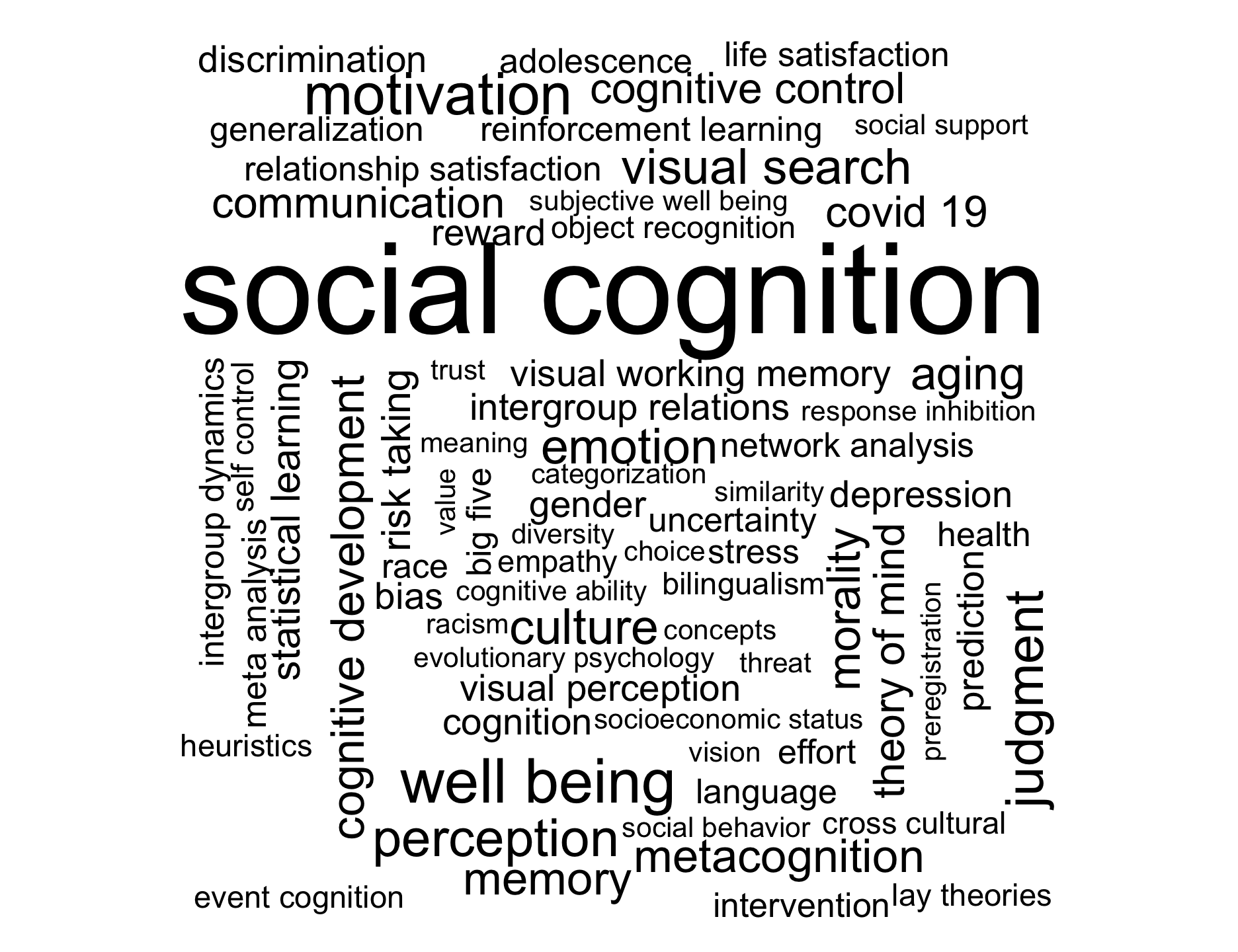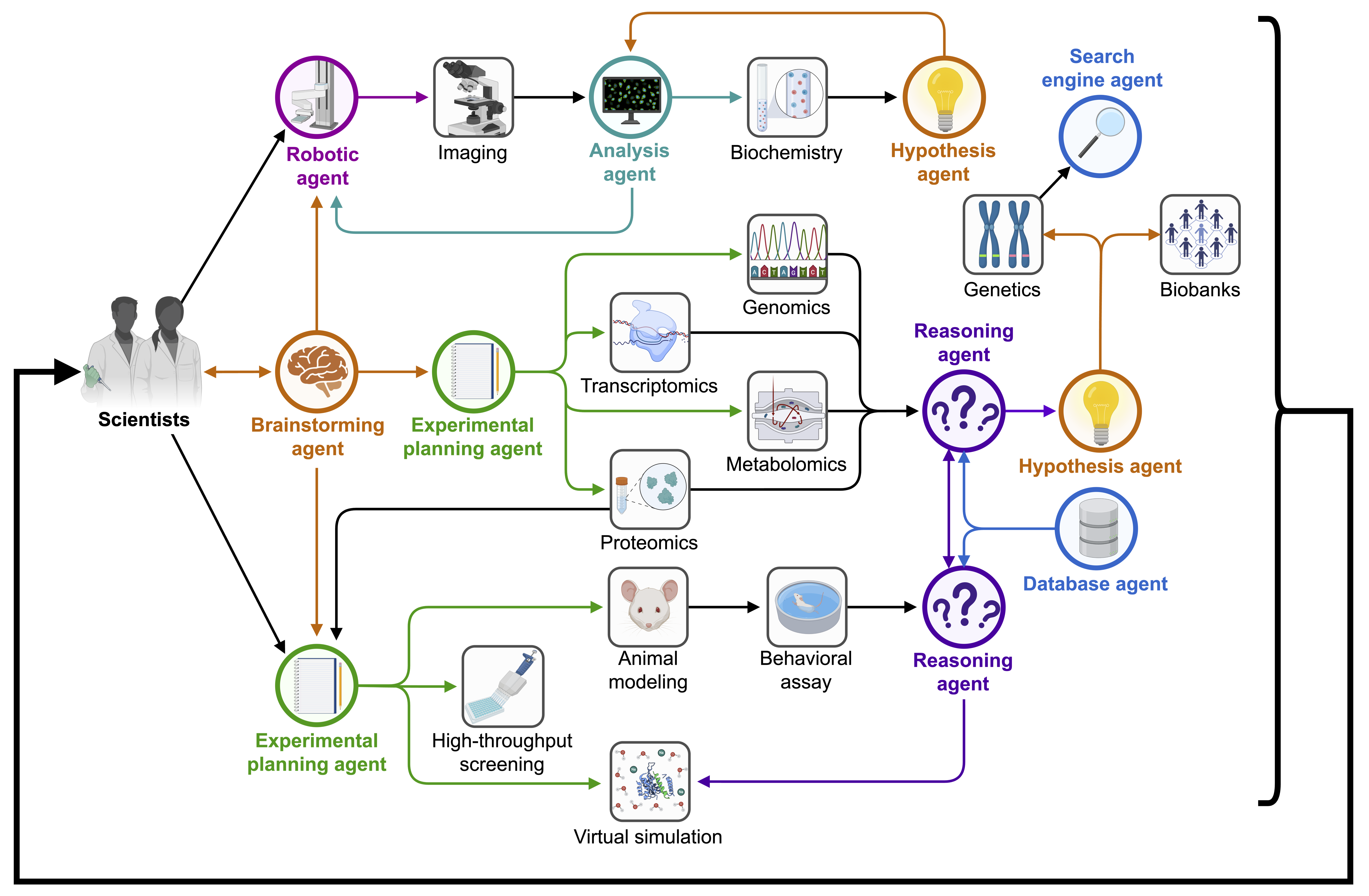AI Knowledge and Reasoning: Emulating Expert Creativity in Scientific Research
2404.04436

0
0

Abstract
We investigate whether modern AI can emulate expert creativity in complex scientific endeavors. We introduce novel methodology that utilizes original research articles published after the AI's training cutoff, ensuring no prior exposure, mitigating concerns of rote memorization and prior training. The AI are tasked with redacting findings, predicting outcomes from redacted research, and assessing prediction accuracy against reported results. Analysis on 589 published studies in four leading psychology journals over a 28-month period, showcase the AI's proficiency in understanding specialized research, deductive reasoning, and evaluating evidentiary alignment--cognitive hallmarks of human subject matter expertise and creativity. These findings suggest the potential of general-purpose AI to transform academia, with roles requiring knowledge-based creativity become increasingly susceptible to technological substitution.
Get summaries of the top AI research delivered straight to your inbox:
Overview
- Explores the use of AI to emulate expert creativity in scientific research
- Examines how AI systems can be empowered with knowledge and reasoning capabilities to assist and augment human scientists
- Discusses the potential for AI to generate novel hypotheses, design experiments, and draw insights from data in ways that mimic expert human creativity
Plain English Explanation
This paper investigates how AI systems can be designed to emulate the creative problem-solving abilities of expert human scientists. The goal is to develop AI agents that can assist and augment human researchers by generating novel research ideas, designing experiments, and drawing insights from data in ways that mirror the creative processes of scientific experts.
The key challenge is to imbue AI systems with the necessary knowledge, reasoning, and decision-making capabilities to engage in the kind of open-ended, exploratory thinking that characterizes groundbreaking scientific discoveries. This involves bridging the gap between the structured, rule-based nature of current AI and the fluid, intuitive cognition of human experts.
By leveraging advances in areas like machine learning, knowledge representation, and automated reasoning, the researchers aim to develop AI agents that can autonomously generate hypotheses, design experiments, and draw insights in ways that complement and extend human scientific capabilities. This could lead to major breakthroughs in fields like biomedical research by accelerating the discovery of new treatments and therapies.
Technical Explanation
The paper proposes a framework for imbuing AI systems with the knowledge, reasoning, and decision-making capabilities needed to emulate expert-level creativity in scientific research. Key elements of the approach include:
-
Knowledge Representation: Developing rich, structured knowledge bases that capture domain-specific concepts, relationships, and heuristics to inform the AI's decision-making.
-
Automated Reasoning: Deploying advanced reasoning algorithms that can traverse the knowledge base, generate hypotheses, design experiments, and draw insights in ways that mirror human scientific intuition and logic.
-
Machine Learning: Leveraging machine learning techniques to enable the AI agent to learn from data, identify patterns, and refine its knowledge and reasoning capabilities over time.
-
Experiment Design: Equipping the AI with the ability to autonomously design experiments, select appropriate methodologies, and anticipate potential outcomes to test its hypotheses.
-
Insight Generation: Developing mechanisms for the AI to analyze data, identify anomalies, and derive novel insights that could inspire new research directions.
The researchers demonstrate the viability of their approach through a series of case studies in various scientific domains, showcasing the AI agent's ability to generate hypotheses, design experiments, and draw insights that align with expert human reasoning and creativity.
Critical Analysis
The paper presents a compelling vision for the role of AI in augmenting and empowering scientific research. However, it also acknowledges several caveats and limitations that warrant further exploration:
-
Knowledge Acquisition: Populating the knowledge base with the breadth and depth of scientific knowledge required to truly emulate expert creativity remains a significant challenge, particularly in rapidly evolving fields.
-
Reasoning Limitations: While the proposed reasoning algorithms aim to mimic human intuition, there are inherent differences between the structured, rule-based reasoning of AI and the more fluid, contextual cognition of human experts that may limit the AI's ability to truly capture the essence of creative scientific thinking.
-
Bias and Transparency: Ensuring the AI's decision-making processes are transparent, explainable, and free from biases introduced through the training data or algorithmic design is crucial for building trust and acceptance in the scientific community.
-
Collaboration and Complementarity: The paper emphasizes the potential for AI to augment and complement human scientists, but further research is needed to understand how these AI-human collaborations can be effectively structured and optimized.
-
Ethical Considerations: As the capabilities of AI in scientific research advance, there will be important ethical implications to consider, such as the potential misuse of the technology, the impact on traditional scientific careers, and the need for appropriate oversight and regulation.
Addressing these challenges will be critical as the research community works to realize the vision of AI-empowered scientific discovery outlined in this paper.
Conclusion
This paper presents a compelling framework for leveraging AI to emulate and augment expert-level creativity in scientific research. By equipping AI systems with the necessary knowledge, reasoning, and decision-making capabilities, the researchers aim to develop AI agents that can autonomously generate hypotheses, design experiments, and derive insights in ways that complement and extend human scientific capabilities.
While significant challenges remain, particularly in areas like knowledge acquisition, reasoning limitations, and ethical considerations, the potential impact of this work is substantial. If successful, it could lead to groundbreaking advancements in fields like biomedical research by accelerating the discovery of new treatments and therapies. As the research in this area continues to evolve, it will be crucial to address these challenges and ensure that the integration of AI and human scientific expertise is done in a responsible and beneficial manner.
This summary was produced with help from an AI and may contain inaccuracies - check out the links to read the original source documents!
Related Papers
📉
Automating Creativity
Ming-Hui Huang, Roland T. Rust

0
0
Generative AI (GenAI) has spurred the expectation of being creative, due to its ability to generate content, yet so far, its creativity has somewhat disappointed, because it is trained using existing data following human intentions to generate outputs. The purpose of this paper is to explore what is required to evolve AI from generative to creative. Based on a reinforcement learning approach and building upon various research streams of computational creativity, we develop a triple prompt-response-reward engineering framework to develop the creative capability of GenAI. This framework consists of three components: 1) a prompt model for expected creativity by developing discriminative prompts that are objectively, individually, or socially novel, 2) a response model for observed creativity by generating surprising outputs that are incrementally, disruptively, or radically innovative, and 3) a reward model for improving creativity over time by incorporating feedback from the AI, the creator/manager, and/or the customers. This framework enables the application of GenAI for various levels of creativity strategically.
5/14/2024

Empowering Biomedical Discovery with AI Agents
Shanghua Gao, Ada Fang, Yepeng Huang, Valentina Giunchiglia, Ayush Noori, Jonathan Richard Schwarz, Yasha Ektefaie, Jovana Kondic, Marinka Zitnik

0
0
We envision 'AI scientists' as systems capable of skeptical learning and reasoning that empower biomedical research through collaborative agents that integrate machine learning tools with experimental platforms. Rather than taking humans out of the discovery process, biomedical AI agents combine human creativity and expertise with AI's ability to analyze large datasets, navigate hypothesis spaces, and execute repetitive tasks. AI agents are proficient in a variety of tasks, including self-assessment and planning of discovery workflows. These agents use large language models and generative models to feature structured memory for continual learning and use machine learning tools to incorporate scientific knowledge, biological principles, and theories. AI agents can impact areas ranging from hybrid cell simulation, programmable control of phenotypes, and the design of cellular circuits to the development of new therapies.
4/4/2024
🤖
AI and the Problem of Knowledge Collapse
Andrew J. Peterson

0
0
While artificial intelligence has the potential to process vast amounts of data, generate new insights, and unlock greater productivity, its widespread adoption may entail unforeseen consequences. We identify conditions under which AI, by reducing the cost of access to certain modes of knowledge, can paradoxically harm public understanding. While large language models are trained on vast amounts of diverse data, they naturally generate output towards the 'center' of the distribution. This is generally useful, but widespread reliance on recursive AI systems could lead to a process we define as knowledge collapse, and argue this could harm innovation and the richness of human understanding and culture. However, unlike AI models that cannot choose what data they are trained on, humans may strategically seek out diverse forms of knowledge if they perceive them to be worthwhile. To investigate this, we provide a simple model in which a community of learners or innovators choose to use traditional methods or to rely on a discounted AI-assisted process and identify conditions under which knowledge collapse occurs. In our default model, a 20% discount on AI-generated content generates public beliefs 2.3 times further from the truth than when there is no discount. An empirical approach to measuring the distribution of LLM outputs is provided in theoretical terms and illustrated through a specific example comparing the diversity of outputs across different models and prompting styles. Finally, based on the results, we consider further research directions to counteract such outcomes.
4/23/2024
🤖
Science Written by Generative AI is Perceived as Less Intelligent, but More Credible and Trustworthy than Science Written by Humans
David M. Markowitz

0
0
This paper evaluated the effectiveness of using generative AI to simplify science communication and enhance public trust in science. By comparing lay summaries of journal articles from PNAS, yoked to those generated by AI, this work assessed linguistic simplicity across such summaries and public perceptions. Study 1a analyzed simplicity features of PNAS abstracts (scientific summaries) and significance statements (lay summaries), observing that lay summaries were indeed linguistically simpler, but effect size differences were small. Study 1b used GPT-4 to create significance statements based on paper abstracts and this more than doubled the average effect size without fine-tuning. Finally, Study 2 experimentally demonstrated that simply-written GPT summaries facilitated more favorable public perceptions of scientists (their credibility, trustworthiness) than more complexly-written human PNAS summaries. AI has the potential to engage scientific communities and the public via a simple language heuristic, advocating for its integration into scientific dissemination for a more informed society.
5/3/2024